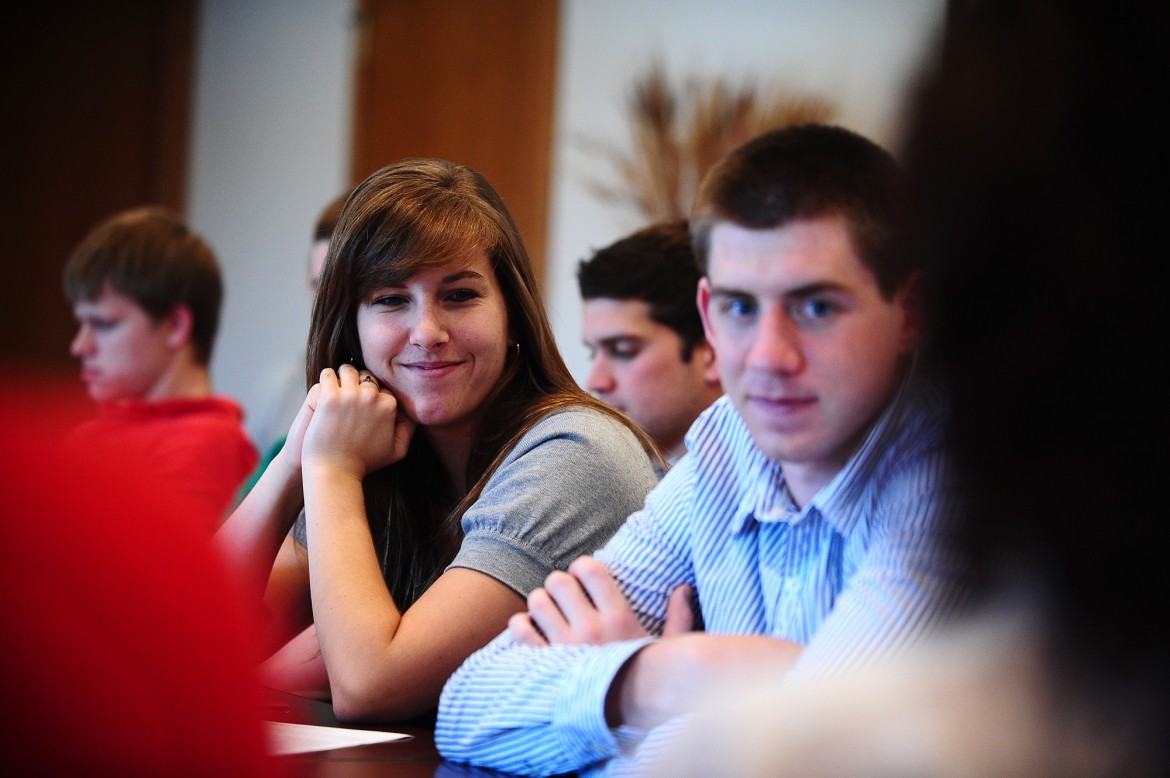College business students may not realize it, but they are learning valuable lessons and skills that can have global implications for alleviating poverty around the world. Helen Loftin, Mennonite Economic Development Associate’s (MEDA) director of women’s economic development, is visiting three south-central Kansas college campuses to share an MBA’s perspective on international development.
MEDA is a not-for-profit organization founded more than 50 years ago by Mennonite entrepreneurs. MEDA creates business solutions to poverty for people in the poorest regions of the world without regard to race, gender or religion.
“College students are often learning about business as it is conducted in Western corporate settings,” says Loftin. “But these same foundations can be applied in developing countries. It’s still business principles, but with adjustments for working in countries that rarely have adequate governance, infrastructure or even basic human rights.
“You have to get creative, get back to basics – Business 101. It’s business at its best, in the purest sense. Market principles can be applied in these communities, too – I believe it is the best way to lift people out of poverty. I’ve heard poverty defined as a lack of choices and opportunities, and I’d add gaps in equality – particularly among women. Business basics have the ability to overcome some of these challenges and hurdles and though market development may not solve all the problems, it nonetheless equips people with currency to participate in the solution.
Sometimes Loftin is asked if MEDA’s work is really helping, and she is quick to illustrate the approach’s effectiveness. “I talk about the Afghan women in our Through the Garden Gate project, which recently ended. These women were some of the most marginalized in society – but through this work even the most disadvantaged of them are earning $50 a year through the sale of the produce they grow. Many of them make much more than that and some of the farmers have become full-fledged traders and are earning thousands per year. $50 may sound paltry to our Western ears, but that money goes so much further there – and does so much more in addition to what it can buy. What it yields is quite remarkable and inspiring. And these families now have better produce available for their own consumption in addition to the sale of surplus yields.
“I very much look forward to meeting the business students at Hesston, Tabor and Bethel colleges in hopes of sparking a dialogue with them about the relevancy of their lessons to fighting global poverty.”
Loftin’s work has included developing business plans, writing and launching programs for women’s enterprises in Pakistan, Afghanistan, India and Bangladesh. She addresses the myriad business challenges faced by marginalized women and facilitates their participation in commerce.
Referencing her work in south-central Asia over the past several years, Loftin will share a uniquely personal perspective about a region of the world that few will ever see and challenges otherwise unknown to us when she presents “She Works Wonders … Stories of Women Entrepreneurs in Afghanistan and Pakistan” at MEDA’s chapter meeting in Hesston at 6:30 p.m. Sept. 27.
— by MEDA staff


